Shall We Dance?
Masculinity and Femininity as Equal & Opposites
I think I may have spotted a positive trend. Now that’s not a sentence you would expect to read in Slouching Towards Bethlehem is it!
Positive trend? Yes....recently (in a certain kind of feminist journalism) I keep coming across warm-hearted acknowledgements that Masculinity and Femininity are complementary polarities in any sane conception of The Good Life. An acknowledgement that the relationship between a man and a woman has the potential to be the finest fruit that life has to offer. And that when things go wrong, they are often better understood as resulting from a kind of Faustian tango between the sexes than as a simple case of one sex always doing wrong by the other. All just timeless truths and plain common sense you might say - and Yes perhaps these timeless truths have ever obtained in the kitchens and bedrooms of our Western society. But they are ones that have been conspicuous by their absence in the groves of academe and in the fourth estate in recent decades.
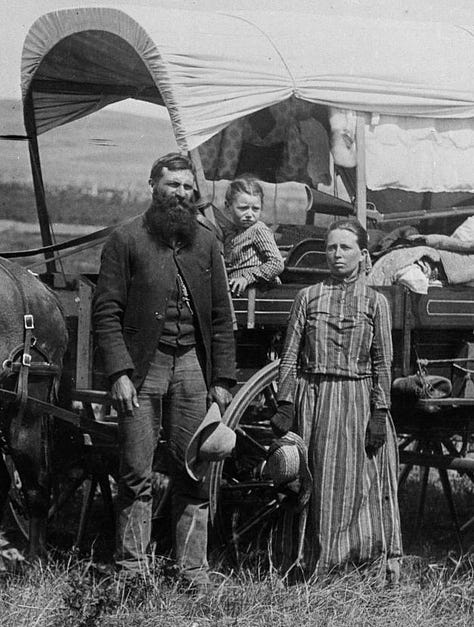

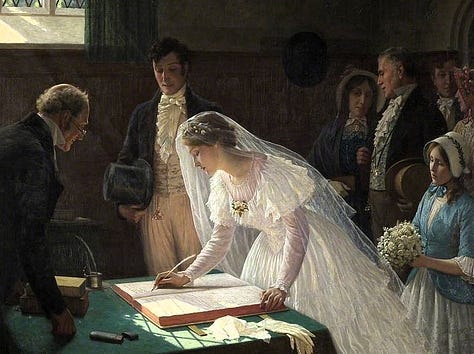
As an armchair philosopher it has always seemed to me that the question of steering a fair course through the choppy waters of discourses about relations between men and women is the trickiest of all. But it’s fair to say that masculinity has not had a good press in recent decades. As journalist Kathleen Stock (* see bio note below) remarked recently “Men are pretty much banned from making any generalisations about women good or bad” so it has perhaps been inevitable in our time that any defence of the male of the species has had to come from women. And that is what most of the rest of this essay will be about.
But first – to put my positive feminist trend in perspective - we need to contrast it with the kind of feminist intellectualising of its so-called ‘Third Wave’ (from around the 1990s on). This kind is perhaps most famously represented by that celebrated grand American dame of militant androgyny Judith Butler. I have in the past written about the myopia and general obtuseness of its various intellectual confections (‘socially-constructed gender’, ‘toxic masculinity’, ‘white patriarchy’ etc) but because I want this essay to have a positive feel I will touch on all of this only briefly. For now, this Wikipedia snippet should be enough to give the flavour of its joyless attacks on human sexuality:
The goal of postmodern feminism is to destabilize the patriarchal norms entrenched in society that have led to gender inequality.[2] Postmodern feminists seek to accomplish this goal through rejecting essentialism, philosophy, and universal truths .....For [Judith] Butler, "men" and "women" are categories complicated by factors such as class, ethnicity, and sexuality. Moreover, the universality presumed by these terms parallels the assumed universality of the patriarchy and erases the particularity of oppression in distinct times and places. ... challenge assumptions about the distinction often made between sex and gender, according to which sex is biological while gender is culturally constructed. Butler argues that this false distinction introduces a split into the supposedly unified subject of feminism. Sexed bodies cannot signify without gender, and the apparent existence of sex prior to discourse and cultural imposition is only an effect of the functioning of gender. Sex and gender are both constructed.
Phew, what a mouthful!.....But could it be that the worst of this kind of thing is now behind us? Or is that wishful thinking? More on that later.
So what about this new more postive feminist journalism? My first instinct was to do my usual thing and try to distil the essence of it into my own overview. But then it occurred to me that it might give a better – more vividly female voice - to just let these women speak for themselves. So the body of this essay will take the form of excerpts from these journalists’ own words - with just a little light annotation from me where necessary, to clarify what is being discussed. It is important to note that - because these are just snippets lifted from quite lengthy articles - wherever you see a string of dots (as in ........) the writer’s subject matter may have moved on quite considerably. So don’t expect a seamless thread of argument. The result will be a kind of dissident feminist kaleidoscope. I include a link at the end of each excerpt so that (barring paywalls) you can see the full text (and all of them are well written pieces). I also give a bit of background info on some of these journalists at the end of this section. So here goes:
What Does Caitlin Moran Know about Men? – Kathleen Stock’s review of Caitlin Moran’s new book What About Men
Moran apparently thinks, not just that masculinity is wholly cultural, but that there’s only one version of it, entirely based on her husband, his mates, and some sons of her friends.... Equally, she seems to think that all women are exactly like she is — dorky, warm, garrulous and funny.....
......She is right that false whispers about sexual misdemeanours can ruin a young man’s life. She tries hard to be sympathetic about this as well as to the idea that young men are beset by images of “toxic masculinity” in a way that is messing them up. And there’s even the odd hint that prevalent feminist approaches might be part of the problem..... Post #MeToo, one legacy of mainstream feminism seems to be the policy of shouting at all men about how terrible they are, in the hope that some of the generalised opprobrium sticks to the right candidates. At the same time, men’s ordinary sexual impulses — sometimes irritating, sometimes welcome — are denigrated and treated as inevitably threatening and sinister.......
[on National Rail’s sexual harassment poster campaign]..... Everyone knows which biological sex this sinister pronouncement is aimed at (hint: it’s not the one batting her eyelashes furiously at you over her free newspaper).
.....And it would also be good if we could talk more about what is wonderful about masculinity, and toxic about femininity, without caveats or excuses. When, in the final chapter, Moran eventually gets round to the former......most of the things she thinks we value in men are also things we value in dogs. In fact, I would go further — they are things we value in elderly Labradors. The characteristics she celebrates — being loyal, hard-working, protective, and so on — are all very pro-social and unthreatening to women and children, and unlikely to set the imagination alight of any young man looking for his own hero’s journey.
.......Perhaps tellingly, though, there’s little suggestion in the book that women could learn from men about being more loyal or crying less...... To treat ‘feminine traits’ as a study programme that any man could get up to speed on if he tried seems to be setting men up for failure — and they don’t need more of that..... In any case, perhaps I am female-atypical, but — inviting as it sounds — I couldn’t live in Moran’s smoke-filled, gin-soaked world of warm hugs, tear-stained confidences and frank conversations about bodily fluids for more than 10 minutes at a time. Sometimes, talking about your feelings makes them worse and sometimes responding empathically to other people’s feelings only makes them more histrionic and attention-seeking. It can be very good to talk, but it can also be very good to shut the hell up and stamp off to dig the garden. https://unherd.com/2023/07/what-does-caitlin-moran-know-about-men/
This from Jennie Cummings-Knight at The Centre for Male Psychology in relation to the above-mentioned poster campaign:
Speaking as a woman, I am always fascinated by the double standards exhibited by women with respect to male behaviour. We are only interested in being looked at by men if we find the said man or men to be attractive to us...... in spite of our assertions that we don’t need male attention (see the Toy Story 4 Bo Beep character, developed by feminist writers) and that we want to be taken seriously as we pursue our careers, we still take a lot of trouble to look attractive to men. ...Teenage girls growing up in the 2000s are still hitching up their skirt waistbands as they come out of school on an afternoon. https://www.centreformalepsychology.com/male-psychology-magazine-listings/the-toxic-male-gaze-should-men-staring-at-women-be-illegal?
Interview with Louise Perry (* see below) about her best-selling book The Case Against the Sexual Revolution Prospect Magazine
“I start from feminist priors,” she explains—like an interest in protecting women and girls—“and I end up at some socially conservative conclusions.” She is ardent in her defence of marriage. Her belief in the importance of chivalry stands out too....... At the end of her book, she suggests that young women—in the name of protecting themselves in a hostile sexual climate—should not get drunk in the presence of men; that they should withhold sex for the first few months of a relationship ;and that they should avoid dating apps. Some of the advice would not be out of place in the 1950s. Louise Perry Prospect interview
Feminism Was Never About Equality - Bettina Arndt at Spectator Australia:
I started calling myself a ‘feminist’ as a young woman in the 1970s after reading Germaine Greer’s The Female Eunuch, ironically whilst working a university vacation job as a Hertz Rent-a-car girl, dressed in my bright yellow perked cap and mini skirt, flirting with American tourists
I convinced myself that feminism was all about equality, about creating a level playing field where women could take their rightful place in the world, embracing opportunities once denied to them. But then I watched with increasing alarm as the current misandrist culture took hold, with the male of the species as the punching bag, and women shamelessly promoted and protected, infantilised, and idealised. Feminism had gone off the rails, I concluded. But it turned out that was wrong. Now I know the truth about feminist history – thanks to the formidable Janice Fiamengo professor of English from the University of Ottawa: “Feminism was never sane.....never expressed any appreciation for men nor recognition that men had made any contribution to society or that men had ever acted out of love and concern and compassion for women........ Men and women in earlier centuries lived interdependent lives in which the fragility of life and the presence of disease, the high infant mortality rate, the lack of a social safety net, and the complexities of housekeeping and childrearing meant that most women and men divided their prodigious labours into separate spheres of domestic and public. https://www.spectator.com.au/2023/01/feminism-was-never-about-equality/
Lana Del Rey’s Dissident Femininity - Kathleen Stock on feminist outrage at the American singer songwriter
Del Rey has complicated her previous limpet-like, ride-or-die presentation. She now manifests a more conventional and modern ambivalence towards the male sex — at least, sometimes. She has also become more maternal in her styling; less pouty, more seraphically sad and queenly in bearing and glances. And you can practically hear journalists breathing a sigh of relief....... Previous commentators have also struggled to place Del Rey with respect to her swaggering, bombastic, “empowered” female contemporaries, singing about how exigent they are in bed or how they insist upon paying for all their own diamonds. For some more obtuse critics, this has meant that Del Rey’s work must be “antifeminist” and “problematic”...... she is channelling the thrilled shiver of a sexy young woman who knows that her short skirt attracts more wolf whistles than anything she might have to say. The singer neither validates these feelings nor criticises them, but simply gives aural expression to what they are like from the inside..... We should continue to cherish this truthful messenger from the dark, tear-soaked underground of female experience — not in spite of her uncomfortably neutral presentations of unfashionable femininity, but partly because of them. https://unherd.com/2023/08/lana-del-reys-dissident-femininity
A Modest Defence of the Missionary Position - Marilyn Simon at Quillette
In our culture of sexual permissiveness, of free and open pornography, it might do well to occasionally remind ourselves that the missionary position remains the go-to for the vast majority of us. At a time when sexuality and gender are being hotly debated in the media, across campuses, high schools, and even primary schools (my grade three daughter recently expressed anxiety about feeling pressured to decide whether or not she was bi, or rather “B. I.,” as she called it), we sometimes forget that sex is also about actually having it..... In the post-#MeToo, third wave feminist climate, it often feels as though, in order to be an ethical progressive women, I need to search out and identify aspects of our society that are sexist, oppressive, unfair. In this light, the missionary position might be read as an instance of masculine oppression..... Women are literally pressed, after all, underneath the weight of masculine will and power...... Sexual pleasure for the women, [Simone de Beauvoir] writes, “is a kind of spell; it demands total abandon.” For a woman, this means abandoning herself to her desires. This is complex for women because the deepest female desire is for a man to see her as the object of his desire; she desires to be desired........ What I’m speaking of here, as a key component to women’s sexuality, is feminine submission. I realize that in our culture the idea of positive female submission is anathema among correct-thinking progressives. https://quillette.com/2019/06/05/a-modest-defence-of-the-missionary-position/ (I would have been interested to have been a fly on the wall when this delightfully original 2019 piece got read by your more conventional type of feminist):
The Climax of the Vagina Monologues - let's put this competitive suffering to bed - Kathleen Stock on the feminist drama by Eve Ensler
Let me take you back to 1996, and an important year for life-changing discoveries. In Scotland, scientists at the Roslin Institute were cloning Dolly the Sheep. In the US, human DNA sequencing was just getting going. Meanwhile, all over the world, like adventurous female explorers setting foot in an unknown land, women were intrepidly discovering their vaginas. Or at least so asserts the potent mythology surrounding Eve Ensler’s play The Vagina Monologues, arriving on stage to rapturous applause that very year. To read this book in my fifties is to re-immerse myself in a worldview once so familiar to me that, as a relatively unquestioning young woman, I could barely differentiate it from the air I breathed. In particular, through its inadvertent depiction of V’s grandiosity, sentimentality, intellectual carelessness, and general hyperemotionality, the book allowed me to better discern a once wildly popular cultural archetype — the American liberal feminist of the Nineties and Noughties — and to newly despair at the wreckage left in her wake...... the climax of the vagina monologues

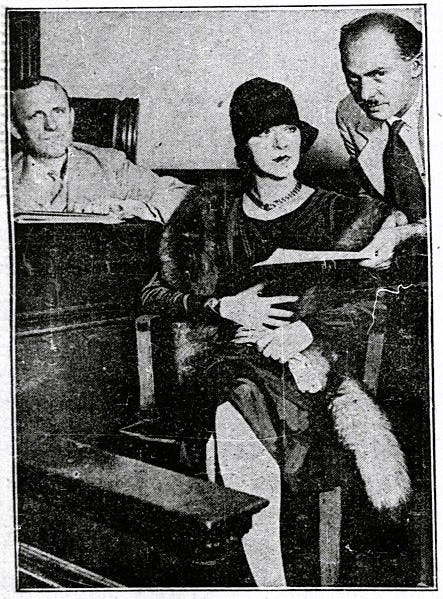
Why MeToo Fallout is Wrecking the Lives of Schoolboys - Sian Griffiths Sunday Times:
“I am watching boys’ lives being destroyed by an excessive cultural shift” [says psychotherapist Julie Lynn-Evans about] boys who have been ostracised, punished or even expelled for behaviour that she describes as little more than clumsy “teenage fumbling”.....
[The article goes on to describes the traumas of various boys like this one who] “is now back in school, but “does not trust people, especially girls” and, as a result, is “scared” to go to university in case he is accused again. “I have no idea after this what a normal teenager does, what a normal teenager is,” he said.....why-metoo-fallout-is-wrecking-the-lives-of-schoolboys
Biographical Notes
Kathleen Stock is a British ex-professor of philosophy at Sussex University. She is a former radical feminist and a lesbian (although also a mother). She was effectively hounded out of Sussex University by the usual pusillanimous stance of its administration in the face of a mob of student-brats who took exception to her saying that ‘trans women’ were actually men. She is now a successful journalist and author.
Louise Perry is a successful British feminist journalist and author. She came to international attention with her book The Case Against the Sexual Revolution and has come to view herself as both a feminist and a social conservative. She is also – dare I say it – a very physically attractive woman and judging by some of the comments on her Substack Maiden, Mother Matriarch she is not uncomfortable with people saying so. I think this a basically healthy thing (as long as the compliment is a gentlemanly one). And until our era of the ‘sexism’ androgynous puritanism, so would most people. https://www.seenandunseen.com/my-conversation-louise-perry
Dr. Marilyn Simon is a Shakespeare scholar and university instructor. She lives in Canada.
Another prominent writer who has made a bridge between feminism and conservatism is Mary Harrington (Unherd contributor and Reactionary Feminist Substacker). The main focus of her writing though is what she calls the ‘transhumanist revolution’ which is the idea that technology is progressively detaching people from their physical reality, thereby a creating dangerous and illusory sense of ‘freedom’ from bodily selves.
The above photo, it seems to me, encapsulates the romantic essence of the idea of a man and a woman embarked on life’s rich - but often hard - journey together. And the above excerpts seem to be pointing us back closer to this idea than the more adversarial feminist rhetoric of recent times. As such they are music to my ears....and maybe yours too. But let’s not get too optimistic here. Even if (God willing) the worst of the Judith Butler-type feminism - fomented in the petri-dishes of academia - is now behind us, its consequences are still rippling all through our mainstream culture. Rippling through it in television dramas, in movies, in Woke Capitalism (via its advertising ‘creatives’) plus inevitably in dim-witted bureaucratic public policy agendas. And it will continue to do so probably for many years to come. Time lags are the reason. Social change’s jet lag-factor is something that anyone who wants to really understand social change needs to always take account of.
As someone who spends too much time watching tv, I often remark on one particular bizarre manifestation of how this pseudo-intellectual nonsense has filtered down into mainstream tv. In your typical 21st c. cop murder-mystery drama, every other kick-ass cop now is female. Typically she is (on the one hand) capable of physically subduing violent male thugs and yet (on the other hand) is still vulnerable (if caught off-guard) to being traumatically raped by them.
Oh, I could go on some more about these downstream consequences of late 20th c. feminism (and have previously written about them here and here). But I’m realising that, to do justice to this material, this Shall We Dance essay is going to have to be a two-parter. Possible themes for Part 2:
- A nod to the ideas of some older dissident feminists like Camille Paglia and Germaine Greer.
- ‘Vive la difference’ ....is this an essential dimension of male/female thriving?
- Has Western society become over ‘feminised’ ...an idea that has gained currency recently?
- Was Christianity’s somewhat puzzlingly rampant spread through the Roman Empire spearheaded by women?


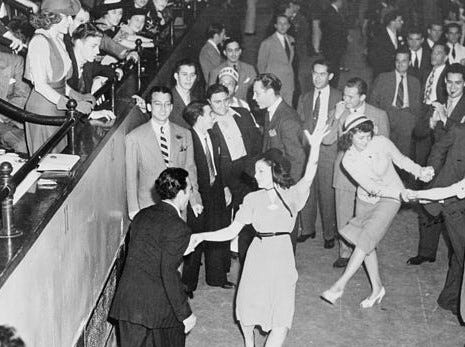
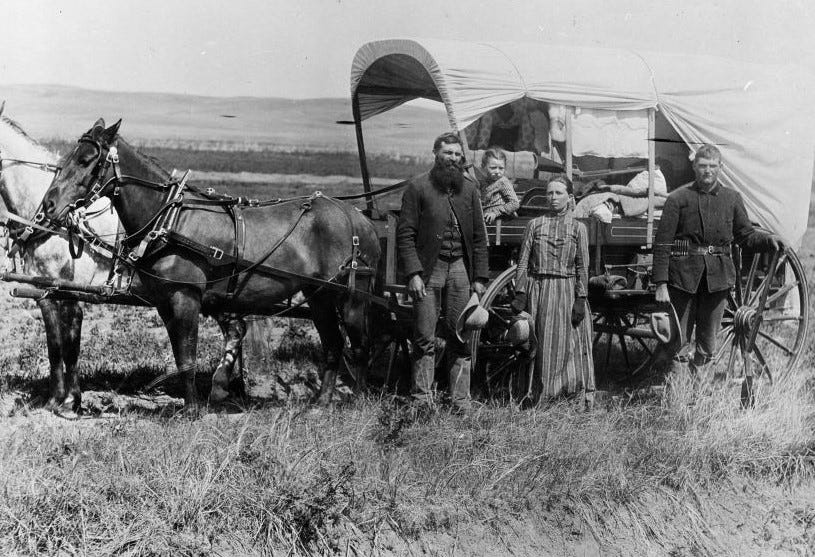
Fascinating, thank you! I also hold out hope for better understanding and mutual support between women and men, and this is a brilliant summary of some recent steps forward. Another seismic shift is the way the trans controversies around women's spaces and sports have highlighted our differences. I don't think we can get anywhere without being honest. In that vein, I think we have to confront the reality of male violence and promiscuity, which traditionally have been airbrushed out of the picture in favor of happily ever after fairytales. In societies that advocate liberty and justice, we keep hitting our heads against the reality of male domination. Because, and this is the crux of our problem, men have had to control women in order to know who their children are. Our social systems are based on that female subordination, yet it flies in the face of our ideals of individualism and freedom. Men have never been, and never will be reliably monogamous, but we looked the other way for good providers. Men often take out their anger on women and children, but we pretend that only those "other" men do that. Women are brutally violent in indirect ways, and are much less promiscuous but still stray. To be successful at this, we have to confront reality.
Yes, I am encouraged by a subset of feminists who are realizing all the ways that the feminist movement (and sexual revolution) largely failed women. But it’s still an uphill battle.
On a side note, I really wonder at anyone learning about feminism from someone like Judith Butler who is decidedly anti-biological sex. How can I really gain anything that helps me as a woman, from a thing that can’t define a woman in the first place?